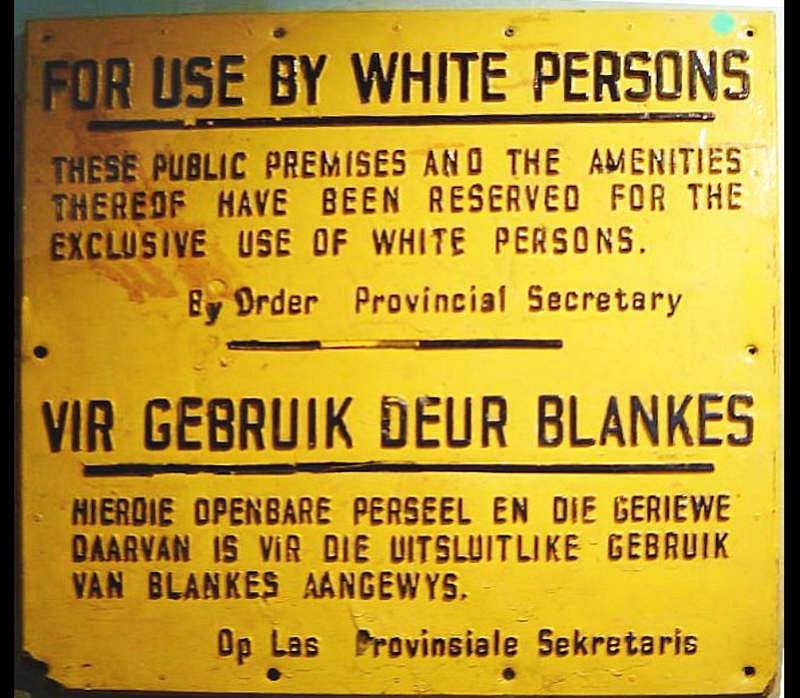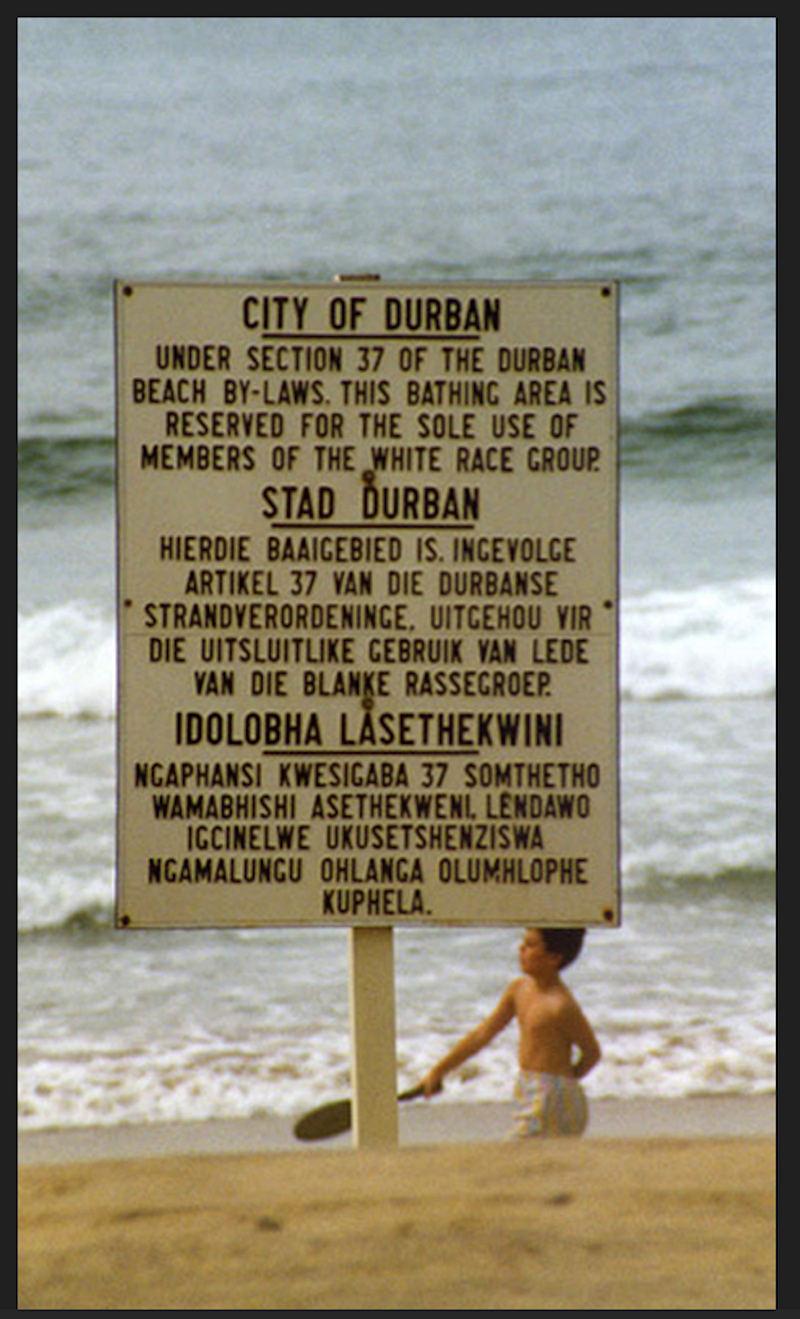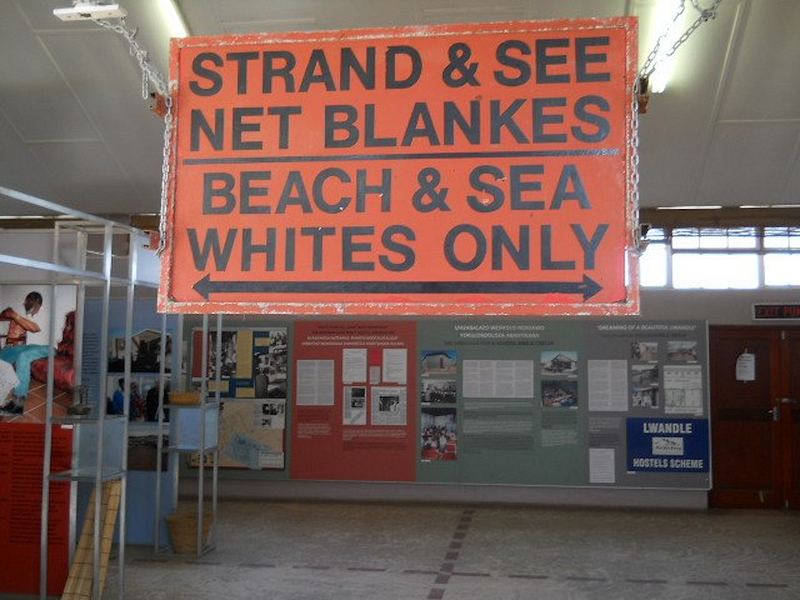South African Apartheid vs Israeli Apartheid
It’s time to look at the details of a legal separation system.

Apartheid came to South Africa in 1948. It left in 1992, and a new government was established in 1994. In total, it was there for a period of 44 years. Apartheid is a legal system, embodied by law, telling systems what they can and cannot do.
As far as I know, Israel has no such system. However, I think it’s best to break it down.
The Group Areas Act of South Africa
South Africans of different races were not allowed to socialize with each other. It was not possible for a white people to be friends with Indian people or African people, and visa versa.
In Israel, anyone can talk to anyone else.

The Sexual Immorality Act of South Africa
In South Africa, you would be jailed if you were caught having sex with someone of a different race.
In Israel, you can have sex with anyone you like. As most Jews in Israel are people of color (70%), it would be somewhat difficult to say that Ashkenazi Jews (30% from Europe) couldn’t have sex with the remaining 70%. However, Jews and Arabs are not forbidden to have sex either.

The Marriage Act of South Africa
People of different races could not marry each other, whether in a civil marriage or a religious marriage. In Israel, there is no such things as a civil marriage. There are only religious marriages in Israel.
As is common with all religions in the world, only two people of the same religion can marry in a church, a synagogue, or a mosque. If you’re a protestant in any country, and you want to marry a Catholic in the Catholic church, you have to convert to a Catholic.
In Israel, if you have a civil marriage outside of Israel, it is recognized in Israel.
The Education Act of South Africa
The law said that Africans were now allowed to be educated to the same level as a white man. The darker the race, the less education they were permitted to received. In my 1975 University of South Africa anthropology text book, it said that Africans were half monkey, and they could not be reviewed as fully human.
In Israel, anyone, regardless of ethnicity, creed, or race, anyone can be educated to any level they like.
The Employment Act (Forgotten the formal name)
If there was a vacancy for a job, a white person had to be employed first — even if the person of color had better qualifications and better work experience. The person of color was also not permitted to earn the same amount of money that a white person would earn.
In Israel, anyone can earn whatever the company/business wants to pay them.

Buildings had separate entrances for different races
All public buildings had two separate entrances — one for white people, and one for people of color. You would be arrested if you used the wrong entrance. In Israel, there is no such thing.
Beaches, parks, and other public resources were split into those which could be used by black people and those which could be used by white people. White people had all the best facilities. In Israel, anyone can use any of the public facilities.

Voting
Only white people could vote in South Africa. Everybody else was disenfranchised. In Israel, provided you are an Israeli citizen, everybody can vote. It doesn’t matter whether you are an Arab or a Jew.
Homelands in South Africa vs Palestinian areas
South Africa
The homelands were created by the South African government to house the different tribes in South Africa. For instance, the Xhosas (Mandela was a prince of the Xhosa people) had the Transkei as their homeland. The Zulus had Kwa-Zulu as their homeland.
Ten homelands were created in South Africa. These were Transkei, Bophuthatswana, Ciskei, Venda, Gazankulu, KaNgwane, KwaNdebele, KwaZulu, Lebowa, and QwaQwa. Each of these were specific to the different tribes. Each homeland was self-governing and had their own leaders.
When South Africa created apartheid, they moved any people of color living in the city to these areas.
There were also townships. These were suburbs outside the cities where only black people could live. Soweto is an example. They generally had no electricity or running water, and in order to get into the city to work, they would have to walk for twenty or thirty miles each day. From this, the mini-cab industry was born.
Israel has never created any homelands for people of color. Nor does has she designated areas where people of different colors had to live in different suburbs.
Israel
Palestine is not a homeland. It was not legally created in order to separate Arabs from Jews. The areas currently known as Palestine include the West Bank, Golan Heights, and Gaza.
They came into being at the end of the 1967 war between Syria, Egypt, and Jordan against Israel. The Golan Heights was the land that Israel took from Syria. The West Bank came from Jordan, and the Gaza Strip came from Egypt.
The reason these areas are regarded as occupied is because of a technicality in the United Nations law. The law states that the country which invades first cannot keep any territories that it gains. In other words, Israel was legally allowed to keep all territory gained in 1947 because the Arabs attacked first. In 1967, the Suez Canal was closed by Middle East countries, and Syria, Egypt, and Jordan amassed troups on their borders with Israel. It effectively left Israel surrounded and isolated. These were acts of aggression. After a month, Israel attacked first (bad move).
These areas because known as Palestine. In reality, they belonged to Egypt, Syria, and Jordan. The countries of Israel and Jordan were originally collectively known as Palestine under the Ottoman Empire. The name ‘Palestine’ was created by the Romans when Judea was under Roman occupation.
The walls surrounding Gaza were put up by both Egypt and Israel in order to prevent the number of suicide bombers coming in. At one point, for several years, there were suicide bombers every day in Israel.
In no way whatsoever do the homelands and townships of South Africa in any way, shape, or form, resemble the formation of Palestine. South African people of color could freely leave their homelands and travel to other areas of South Africa. They did, however, require a pass, so that if they were stopped, they had to produce them.
Palestine
Palestine is not a province or a part of Israel in any way. Gaza is self-governing (Hamas) and there are no Jews within the area. The West Bank is governed by the Palestinian Authority, and while there are Israeli settlements in the area (and there shouldn’t be), it is not part of Israel.
Amnesty International and Desmond Tutu
There are all sorts of people who accuse Israel of apartheid. I beg to differ. I see no resemblance between the two. I lived in South Africa for 40 years. Both my parents were anti-apartheid — my mother a founder member of the esteemed organization — the Black Sash. I joined Nobel Peace Prize Winner, Helen Suzman’s political party in 1966.
I have taken time to read why Palestinians say that it’s an apartheid system. They claim that there can be no intermarriage between Muslims and Jews in Israel. Well, I have news for them. No synagogue in the world will marry a Muslim and Jew. No Catholic church in the world will marry a Muslim, Protestant, or Jew to a Catholic in a Catholic ceremony. These are religious tenets of various religions — they have nothing to do with apartheid.
The fact that there are fences surroundings Gaza has nothing to do with apartheid. It has to do with protecting the people of Israel. Egypt also has fences barring entry from Palestinians into Egypt.
In anticipation of some of the comments I will receive, unless you have actively lived in Palestine, Israel, or South Africa, I don’t think you have a voice in this, but I am willing to listen. Also, if you’re off topic, and you’re going to on about the sins of Israel, I will hide your comment from readers. This is about only one topic — that Israel (and Palestine is not a province of Israel) is not an apartheid state.
If you find my occasional stories informative or entertaining, please would you consider ‘buying’ me a cup of coffee at Ko-fi for $4. I’d also appreciate a monthly patronage. Writing is my only means of survival. The reason for that is I have Asperger’s (high functioning autism) and an Auditory Processing Disorder, and I would greatly appreciate your kindness.





